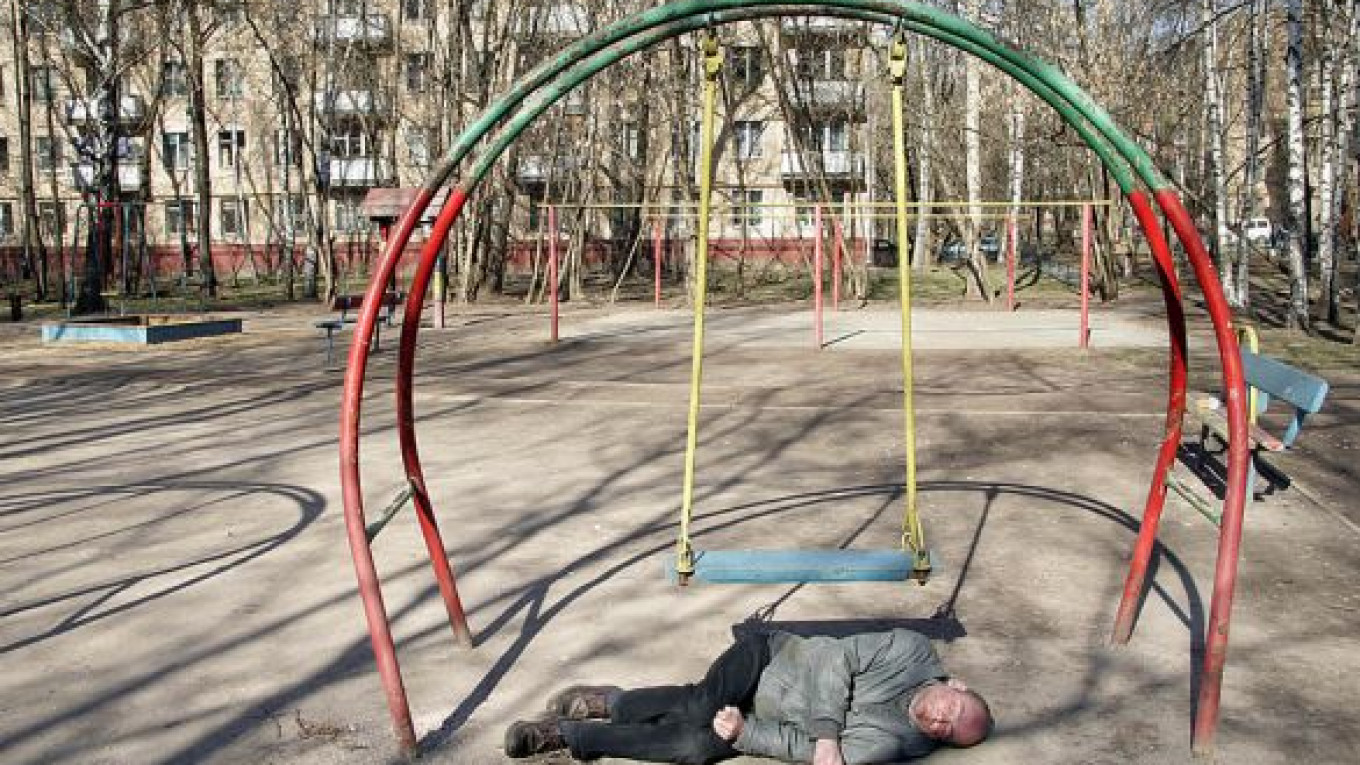Rampant alcoholism is a centuries-old problem for Russia, but the younger generation is bucking the trend, as more and more activists team up to urge compatriots to "stop guzzling."
Nationalists are attempting to spearhead the grass-roots campaign, seeing it as a matter of "survival of the Russian nation," but the call for a healthy lifestyle reaches beyond the radicals.
Alcohol is the cause of one-fifth of all deaths in Russia, according to this year's World Health Organization survey. But a joint study by the State Statistics Service and UNICEF in January also showed alcoholism among young people has dropped 15 percent since 2005.
"We are not fighting against drinking, we are fighting for sobriety," activist Alexander Suvorov, 20, told The Moscow Times on Thursday.
Suvorov and his friends can often be spotted in the metro, placing small stickers on the walls. The practice — actually a minor infraction ?€” is popular among small shady businesses offering cheap credits or forged sick leave documents, but this time, the stickers simply show a crossed-out bottle with the pithy call: "Stop Guzzling."
Suvorov said he gave up booze after his heavily inebriated friend assaulted him with a knife at a party a year ago. "I told myself I have to stop drinking and tell everyone about it," he said.
He said he places some 100 stickers a day, mostly on the way to and from his Moscow college, where he studies economics.
Some other sobriety promoters opt for more radical methods. Rostov-on-Don bloggers reported last year that young men hiding faces behind medical masks jumped people who drank alcohol in the streets, beating them up while screaming "Russians don't guzzle!"
No one took responsibility for the attacks, but nationalists are believed likely suspects, as many of them oppose drinking, while the radical part of the movement is also known for street violence.
Nationalists were behind some anti-booze campaigns in social media and attempts to organize jogging rallies aimed at promoting a healthy lifestyle. Most runs, however, are dispersed by police, wary of any unsanctioned public activity. The latest such event, staged in Moscow's Izmailovsky Park in February, ended with most joggers being fined for violating traffic rules.
But the anti-alcohol movement appears to be a patchwork of unrelated small groups with different beliefs and approaches.
Suvorov said he and his friends do not subscribe to any particular ideology or religion and do not use violence to achieve their goals.
But they take a hard-line stance on alcohol ?€” unlike other groups, including the prominent "Stop Guzzling" group on the Vkontakte.ru social networking web site, which tolerates occasional drinking.
"We don't drink at all," Suvorov said.
A Message from The Moscow Times:
Dear readers,
We are facing unprecedented challenges. Russia's Prosecutor General's Office has designated The Moscow Times as an "undesirable" organization, criminalizing our work and putting our staff at risk of prosecution. This follows our earlier unjust labeling as a "foreign agent."
These actions are direct attempts to silence independent journalism in Russia. The authorities claim our work "discredits the decisions of the Russian leadership." We see things differently: we strive to provide accurate, unbiased reporting on Russia.
We, the journalists of The Moscow Times, refuse to be silenced. But to continue our work, we need your help.
Your support, no matter how small, makes a world of difference. If you can, please support us monthly starting from just $2. It's quick to set up, and every contribution makes a significant impact.
By supporting The Moscow Times, you're defending open, independent journalism in the face of repression. Thank you for standing with us.
Remind me later.


